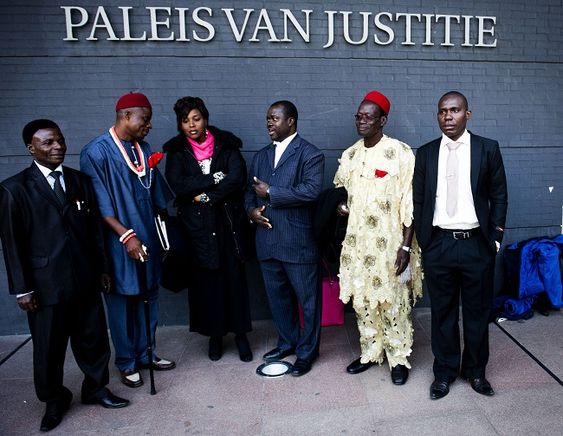Business
Shell will pay €15 million to Ogoni farmers for pollution

In order to make up for the harm caused by pipeline breaches, Shell announced on Friday that it will give 15 million euros to Nigerian farmers.
After 13 years of legal disputes, a Dutch appeals court decided last year that Shell’s Nigerian subsidiary must make amends for a number of leaks and that the parent corporation must put new pipeline equipment in place to stop further catastrophic spills.
Shell said on Friday that it had reached a deal with the Dutch environmental group Milieudefensie that was good for the affected areas.
The SPDC joint venture’s operator, The Shell Petroleum Development Company of Nigeria Ltd. (SPDC), said in a statement: “Under the settlement, SPDC will pay an amount of EUR 15 million for the benefit of the communities and the individual claimants.”
The agreement also says that 20 segments of pipeline have been fixed and a leak detection system has been put in place, as the Dutch court had ordered.
The oil company agreed that the settlement put the Dutch court’s decision into effect, but it insisted that it “does not admit liability, pays all claims, and ends all litigation related to the incidents.”
To recover costs for cleaning up leaks from its pipelines in the Niger Delta, four farmers and fishermen from Nigeria sued Shell in the Netherlands.
They received assistance from Milieudefensie, the Friends of the Earth Dutch chapter.
Shell has always said that sabotage caused pollution and that they cleaned up the damage.
Because of the long court case, the first farmers who were involved died, but their families and the affected areas kept going.
Eric Dooh, one of the current plaintiffs, said it was a “huge comfort to all of us that after the years of legal battle with Shell, we will soon be recipients of this money as compensation for all we have lost.”
According to Donald Pols, director of Milieudefensie, the settlement would finally let the claimants and their communities move on with their lives.
But he added that it also has broader implications.
The main benefit of the court action, according to him, is the establishment of a new norm, which means businesses will no longer be able to get away with polluting and disregarding human rights.
“They can now be held accountable.”
